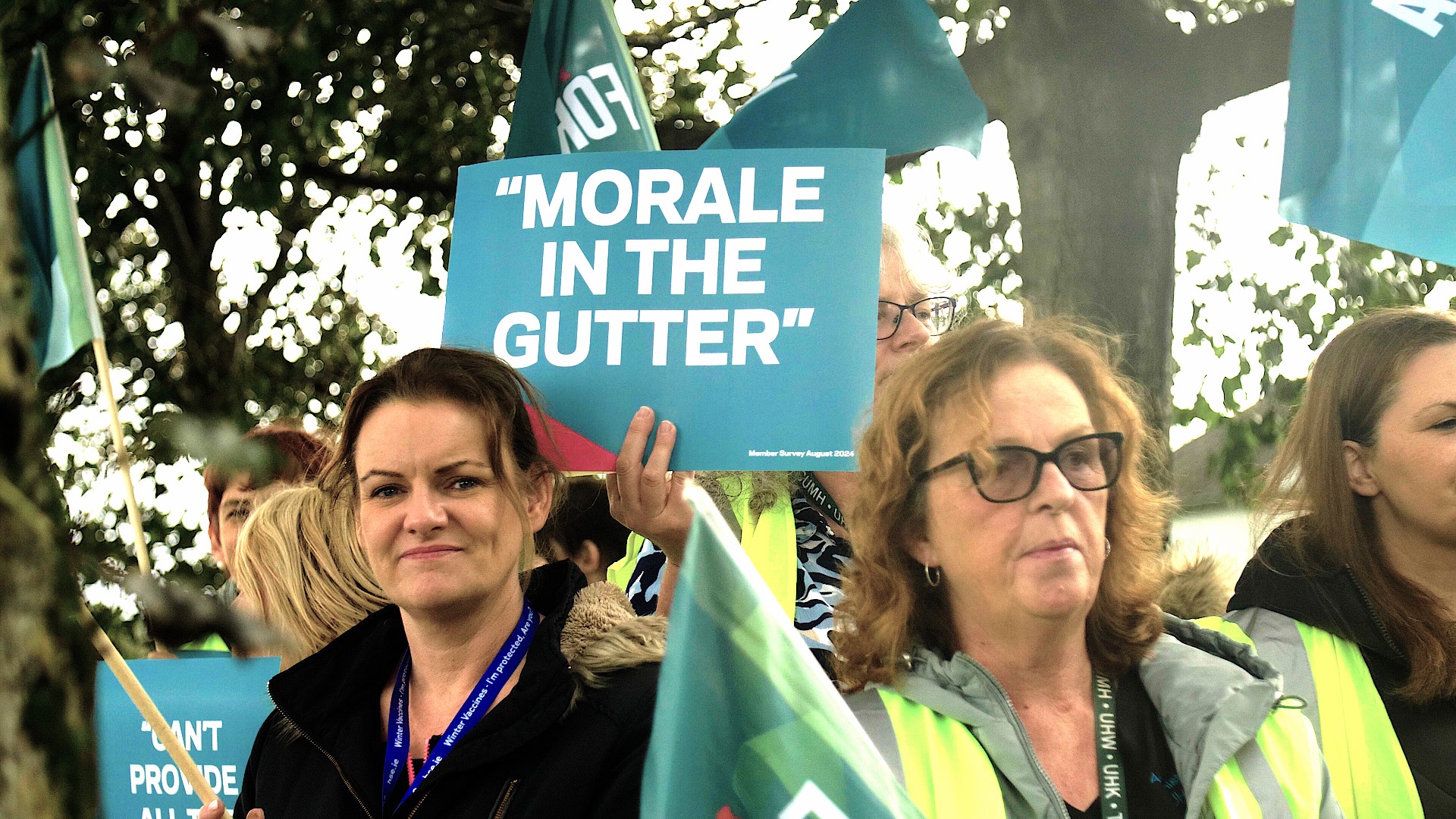New research, based on the input of almost 3,800 health staff, has revealed that staff morale in Irish health services is at a critically low level.
Fórsa, Ireland’s largest public service trade union, commissioned the research by independent think-tank TASC, in which 68% of respondents described staff morale as either ‘low’ (43%) or ‘terrible’ (25%).
Almost half of respondents (48%) said the situation had worsened over the last two years, while over half (53%) said low morale is negatively affecting the quality of care.
The research shows high levels of dissatisfaction with opportunities for career development (63%), and a significant number of staff continuing to work despite feeling unwell, while 68% of respondents reported feeling unwell – due to work-related stress – over the previous two years.
The research identifies factors like understaffing, a sense of ‘disconnect’ between senior management and staff, a ‘lack of recognition and underappreciation’ of staff, alongside increasingly negative public perceptions of health and care systems as being responsible for the continuing decline in morale.
TASC presented the results of the research this morning (Thursday) to delegates at Fórsa’s Health and Welfare divisional conference, which is taking place this week in Letterkenny, County Donegal. Fórsa represents more than 35,000 health and welfare workers including health and social care professionals, clerical, administrative, management and technical staff.
Commenting on the research findings, Fórsa national secretary Linda Kelly said: “Unfortunately, the research confirms what our members have been talking about over the last couple years with increasing frequency.
“Staff shortages, in a wide range of health service areas, has really increased the pressure on health and social care staff, and that has placed a heavy toll on staff morale,” she said.
Ms Kelly said that the most concerning aspect of the research is the extent to which staff are actively considering leaving their jobs to work elsewhere: “The staffing pressures appear to be having a negative impact on how healthcare workers feel about staying in employment.
“Diminishing morale among existing staff is leading to burnout, and we can see this especially among those with longer service and experience, while a very high proportion of respondents – 76% – said they often think about leaving their current role.
“When experienced staff retire, or leave employment for other reasons, it represents a very significant loss of skills, an increase in workload for remaining staff, which further diminishes morale, and the cycle then continues. That’s not sustainable,” she said.
Proposing a motion to conference in response to the research, Donegal Fórsa member Angela McGinley said her department is currently at the loss of two people, both on stress-related sick leave: “These colleagues are not being replaced, and this has a knock-on effect of the rest of us, creating additional work, people hastily grabbing a bit of lunch at their desk, while trying to maintain a service that responds to our patients,” she said.
Ms McGinley said while low morale jeopardises workforce retention, it also compromises service delivery.
Ms Kelly said the research should be “a very loud alarm” for both the health service CEOs and the Minister for Health: “Without heath care staff, we do not have a health service. Focus must now turn to working with staff to improve the morale situation.”
The TASC research combines an online survey of close to 3,800 participants, focus group research and a literature review, drawing responses from HSE, Tusla, and ‘Section 38’ and voluntary health organisations. Respondents include clerical and administrative staff and health and social care professionals (HSCPs).
The conference in Letterkenny continues until Friday.
Join a union that wins. Join Fórsa.

